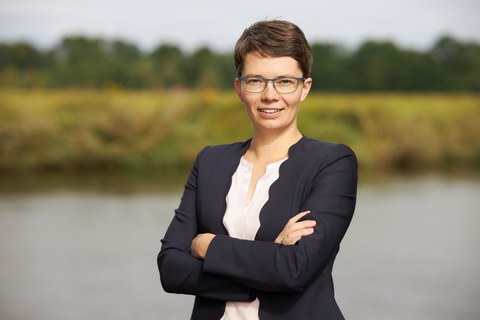Feb 12, 2025
Maria Kosse has taken up her post as Chair of Components of Intelligent Energy Networks

Kosse
Prof. Maria Kosse has held the Chair of Components of Intelligent Energy Networks at the Institute of Electrical Power Systems and High Voltage Engineering (IEEH) in the Faculty of Electrical Engineering and Information Technology since January 1, 2024 and took up her post in January 2025.
Maria Kosse studied electrical engineering at the TUD Dresden University of Technology. She received her doctorate there in 2016 in the field of gas-solid insulation systems for applications under high DC voltage. From 2016 to 2023, she worked at Siemens and Siemens Energy in Erlangen. There she initially led research and development projects for gas-insulated DC systems. Most recently, she worked as a lead engineer in the field of high-voltage direct current transmission and led cross-functional teams of engineers. She was responsible for the design and technical concept for offshore grid connection projects of the new 2000 MW generation to achieve the ambitious climate targets for the European energy transition.
With the teaching and research profile of the Chair of Components of Intelligent Energy Networks, Maria Kosse aims to contribute to future-proof energy grid structures of the transmission and distribution grid with regard to the components required for this. This includes insulation, conductor and contact systems for new grid participants, such as photovoltaic systems, large-scale electrolysers, battery storage systems and electromobility, as well as for proven equipment under new loads, e.g. for overhead lines, cables, electrical machines and switchgear. The Chair combines the fields of high-voltage and high-current technology. Special emphasis is placed on components for direct voltage applications and components with environmentally friendly materials.
In order to meet the challenges of a future-proof energy system, our society needs, above all, excellently trained engineers. For Prof. Maria Kosse, a key objective in teaching is therefore to qualify individuals who are able to contribute to tackling the social challenges of climate change and energy security through their specialist knowledge and methodological expertise. She is convinced that with her enthusiasm she can also ignite a spark in students for energy technology.
